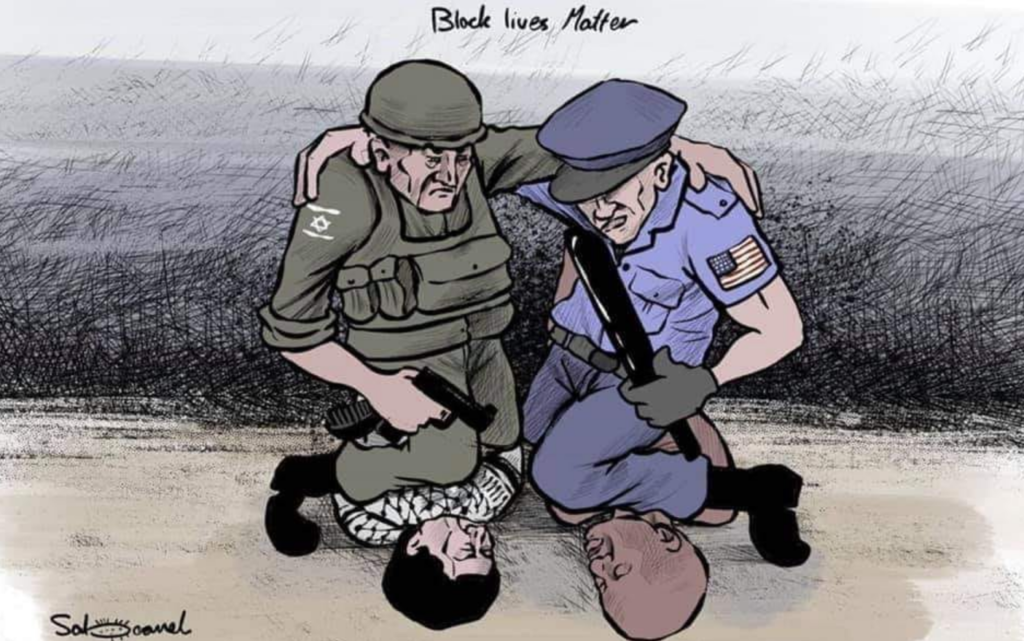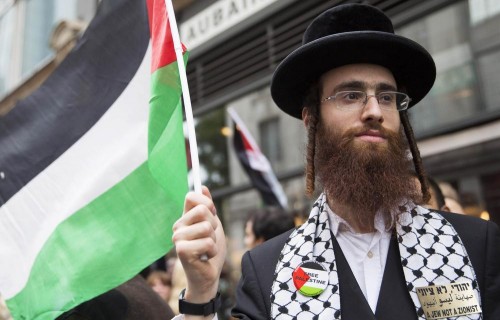
By Elizabeth Dias and Ruth Graham
Dan Kleinman does not know quite how to feel.
As a child in Brooklyn, New York he was taught to revere Israel as the protector of Jews everywhere, the “Jewish superman who would come out of the sky to save us” when things got bad, he said.
It was a refuge in his mind when white supremacists in Charlottesville, Va., chanted “Jews will not replace us,” or kids in college grabbed his shirt, mimicking a “South Park” episode to steal his “Jew gold.”
But his feelings have grown muddier as he has gotten older, especially now as he watches violence unfold in Israel and Gaza. His moral compass tells him to help the Palestinians, but he cannot shake an ingrained paranoia every time he hears someone make anti-Israel statements.
“It is an identity crisis,” Mr. Kleinman, 33, said. “Very small in comparison to what is happening in Gaza and the West Bank, but it is still something very strange and weird.”
Divides between some American Jews and Israel’s right-wing government have been growing for more than a decade, but under the Trump administration those fractures that many hoped would heal became a crevasse. Politics in Israel have also remained fraught, as Prime Minister Benjamin Netanyahu’s long-tenured government forged allegiances with Washington. For young people who came of age during the Trump years, political polarization over the issue only deepened.
Many Jews in America remain unreservedly supportive of Israel and its government. Still, the events of recent weeks have left some families struggling to navigate both the crisis abroad and the wide-ranging response from American Jews at home. What is at stake is not just geopolitical, but deeply personal. Fractures are intensifying along lines of age, observance and partisan affiliation.
In suburban Livingston, N.J., Meara Ashtivker, 38, has been afraid for her father-in-law in Israel, who has a disability and is not able to rush to the stairwell to shelter when he hears the air-raid sirens. She is also scared as she sees people in her progressive circles suddenly seem anti-Israel and anti-Jewish, she said.
Ms. Ashtivker, whose husband is Israeli, said she loved and supported Israel, even when she did not always agree with the government and its actions.
“It’s really hard being an American Jew right now,” she said. “It is exhausting and scary.”
Some young, liberal Jewish activists have found common cause with Black Lives Matter, which explicitly advocates for Palestinian liberation, concerning others who see that allegiance as anti-Semitic.
The recent turmoil is the first major outbreak of violence in Israel and Gaza for which Aviva Davis, who graduated this spring from Brandeis University, has been “socially conscious.”
“I’m on a search for the truth, but what’s the truth when everyone has a different way of looking at things?” Ms. Davis said.
Alyssa Rubin, 26, who volunteers in Boston with IfNotNow, a network of Jewish activists who want to end Jewish American support for Israeli occupation, has found protesting for the Palestinian cause to be its own form of religious observance.

She said she and her 89-year-old grandfather ultimately both want the same thing, Jewish safety. But “he is really entrenched in this narrative that the only way we can be safe is by having a country,” she said, while her generation has seen that “the inequality has become more exacerbated.”
The New York Times

Leave a Reply
You must be logged in to post a comment.